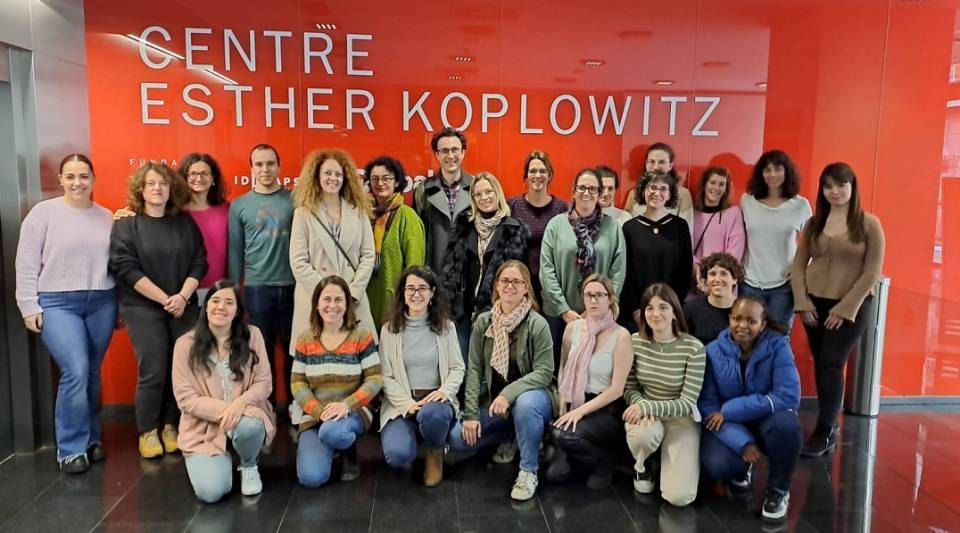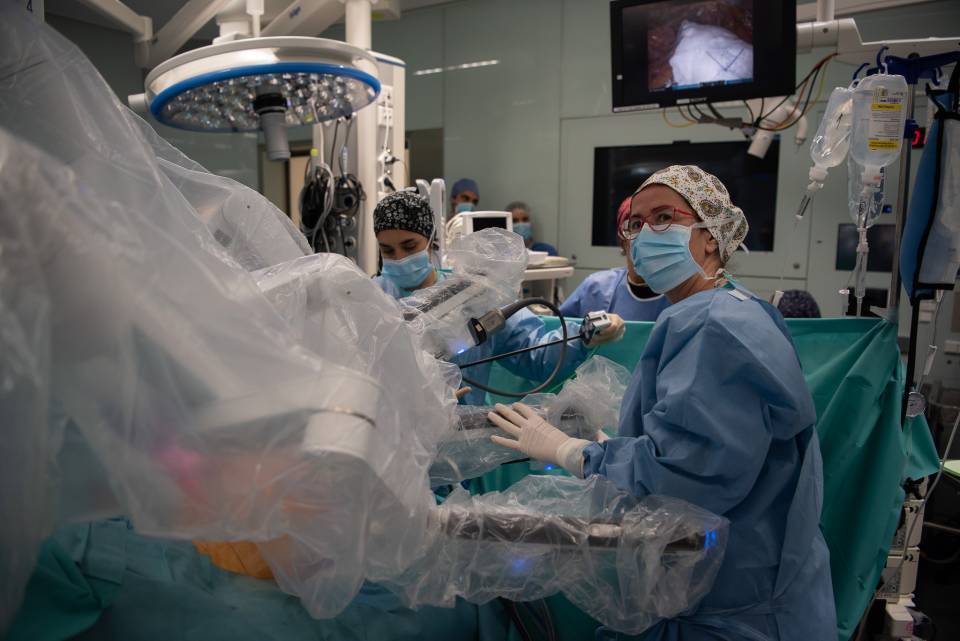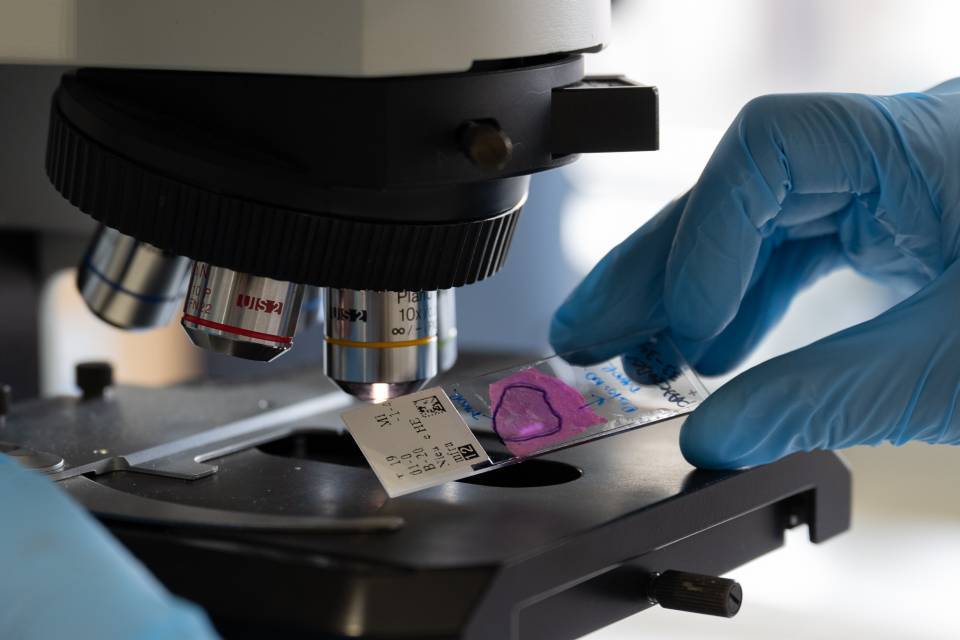From January 10 to 12, IDIBAPS received a visit by six researchers from the Institute for Oncology and Radiology of Serbia (IORS) in Belgrade. The visit formed part of the STEPUPIORS project, and the delegation included Milena Cavic, the project coordinator. Over the three days, the guests attended several meetings and training sessions given by personnel at the IDIBAPS Biobank and European and International Project Management Office.
The activity was organised with the aim of creating a space for exchange and advice and providing the IORS visitors with tools and resources to establish a tumour and tissue bank specialising in rectal cancer. More specifically, the IDIBAPS Biobank team shared their experience in administrative tasks, sample and data management, quality control, organisation and infrastructure, ethics, sustainability, and dissemination activities with the visitors. As regards dissemination, the IORS members took part in an escape room activity designed by IDIBAPS Biobank personnel to enable people not familiar with the facility to learn about their day-to-day activities. In the near future, the IDIBAPS Biobank team will visit Serbia to follow up on the consulting provided.
At present, the IORS does not have a research management office. To help the Serbian institute complete the STEPUPIORS project work plan and create such an office, IDIBAPS STEPUPIORS personnel gave the visiting researchers training in such areas as promotion, the preparation of projects and financial reports, and time and schedule control tools.

Finally, the delegation met Sergi Castellví-Bel, head of the IDIBAPS Genetic predisposition to gastrointestinal cancer group, and his team, all members of the consortium that leads STEPUPIORS.
The main objective of STEPUPIORS (101079217), a project funded by the European Union, is to establish a European consortium of institutions dedicated to researching into rectal cancer. The aim is to identify prognostic and predictive biomarkers of rectal cancer by analysing the molecular profile of patients at diagnosis and during treatment. Given that colorectal cancer is the third most common form of cancer worldwide, it is hoped that the project results will provide support for evidence-based patient selection and the modification of current treatment protocols in order to minimise adverse effects and the overall cost of treatment, as well as improving patients’ quality of life.
The kickoff meeting took place in Belgrade on 29 November 2022. The meeting, which was attended by all the institutions forming part of the consortium, served to lay the foundations for a long-lasting relationship enabling exchanges of knowledge, personnel and samples.




